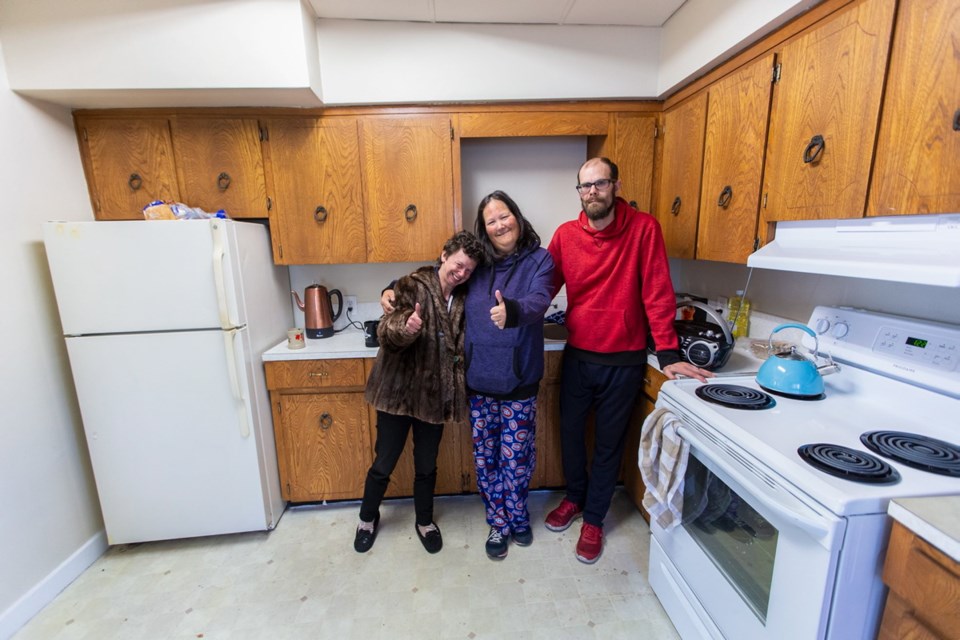The living room has no furniture and in the bedrooms, air mattresses stand in for beds, but in this three-bedroom bungalow, four former tent city residents have a place to call home.
Two couples — Dee Dee and Don Patenaude, and Lynne Hibak and Blair Este — have been given subsidized housing in Saanich through Pacifica Housing’s Streets to Homes program.
The beds are set to arrive Monday and Pacifica Housing is working to fill the home with donated furniture and kitchen essentials.
Showing off the stone fireplace, a clean bathroom and large kitchen, Dee Dee Patenaude said it’s a huge improvement compared with the months spent camping.
“It’s nice to know you have permanent shelter over your head and a bed and a place to call home,” Don Patenaude said.
The two couples were among the estimated 100 people camping in Regina Park over the summer.
After the tent city was shut down in September, the four stayed together, relocating to Goldstream Provincial Park campground and then to Woodwynn Farms.
Dee Dee Patenaude said the constant stress of being moved along by authorities was harmful for her and Hibak, who have developmental disabilities.
“If we weren’t here, we’d still be on the streets and in shelters, not living a normal life,” Hibak said.
Hibak, who receives a disability pension, said before tent city, she was living in a room in Rock Bay Landing, a shelter run by the Victoria Cool Aid Society.
However, she couldn’t live with her partner, Este, who cares for many of her health needs.
Pacifica Housing has found homes for about 14 former tent city residents, said Chris Forester, the non-profit’s housing outreach manager.
Another four people, two brothers and a couple, were placed in a single-family home and others were placed in subsidized apartments.
“This is just giving people in the most vulnerable segment of our population the dignity and basic resources to live a life full of well-being,” Forester said.
Pacifica Housing has connections with landlords who are willing to rent to people on income assistance.
The landlord charges market rent, which Pacifica is able to cover by combining each person’s shelter allowance, a form of social assistance provided by the Ministry of Social Development and Poverty Reduction.
The housing agency tries to select homes that are close to downtown social services and in neighbourhoods where low-income renters will be accepted.
“We don’t want to put them into communities where they won’t be accepted or tolerated,” said Forester, alluding to the ongoing stigma around poverty. “We want them to feel safe and not stick out.”
Pacifica Housing is partnering with development companies willing to set aside a number of affordable housing units in new buildings, Forester said.
Don Patenaude believes the publicity around the tent city and the dire situation facing Greater Victoria’s homeless population were instrumental in getting people housing.
People living on the street or in parks alone are often invisible, he said, but the attention paid to the group of campers forced governments and social agencies to act.
“It does definitely bring light to the [homeless situation],” said Don Patenaude, who lived in Vancouver until he and his wife decided to move to Victoria six months ago.
At the same time, the visibility of tent city and stories of spikes in crime led to public anger and a blindness to individual stories, Dee Dee Patenaude said.
“You can’t just paint us all with the same brush. We’re not all drug users; some of us have mental disabilities,” she said.
Dee Dee Patenaude said they have received a warm response in their new neighbourhood.
“One of the neighbours walked by with their dog and said: ‘Welcome to the neighbourhood.’ That was really nice,” she said.



